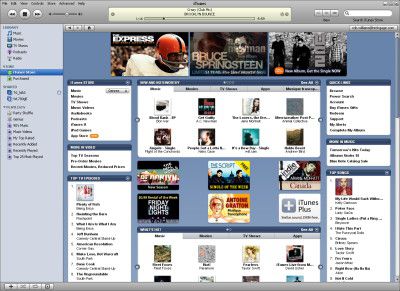From our front-page news:
Apple can't seem to catch much of a break lately. First, Steve Jobs is forced to go on a mini-hiatus due to health, then a renegade app store gets released, then the company releases an iPod shuffle that's getting more flack than praise, and now fake iTunes cards are being sold that is going to cost them, big time. When you purchase a gift card for either yourself (why would you do that?) or for someone else, you don't save money on the purchase, but it acts like money. So, a $50 gift card would net you about fifty individual tracks on the service.
But what if you were able to purchase a $200 gift card for $2.60 USD? That's the issue plaguing the company right now, as these cards happen to be rather popular in, where else, China. Thanks to the fact that someone was able to crack the code and create key generators for the cards, a seemingly limitless number of cards can be produced and sold, and for extremely cheap.
There are a few oddities and issues that arise from this. If people purchase $200 worth of music/movies and whatever else on iTunes, Apple owes the content providers for those. So for each fake card sold, you could argue that it's $200 straight out of Apple's pockets. The oddity is that Apple only offers gift cards in denominations of $15, $25 and $50 on their website, so how on earth does a $200 card work?
In the console game "Tony Hawk's Underground 2", there was a billboard for Napster in the New Orleans level I'll never forget, and it really hits home here. The tag-line was simply, "Steal money to buy music". It was of course meant as a joke, but it's ironic that it's absolutely true where this scheme is concerned.

For example, when you buy a fake iTunes card at Taobao, the seller simply sends you a voucher code that would have been printed on the real card. The code arrives via Taobao's own instant messaging software, most likely in order to make collecting evidence in a criminal investigation nearly impossible. You then simply redeem a voucher code in the iTunes application and voila -- you end up with a virtual $200 credit in your iTunes Store account, and all for only $2.60.
Source: TG Daily
But what if you were able to purchase a $200 gift card for $2.60 USD? That's the issue plaguing the company right now, as these cards happen to be rather popular in, where else, China. Thanks to the fact that someone was able to crack the code and create key generators for the cards, a seemingly limitless number of cards can be produced and sold, and for extremely cheap.
There are a few oddities and issues that arise from this. If people purchase $200 worth of music/movies and whatever else on iTunes, Apple owes the content providers for those. So for each fake card sold, you could argue that it's $200 straight out of Apple's pockets. The oddity is that Apple only offers gift cards in denominations of $15, $25 and $50 on their website, so how on earth does a $200 card work?
In the console game "Tony Hawk's Underground 2", there was a billboard for Napster in the New Orleans level I'll never forget, and it really hits home here. The tag-line was simply, "Steal money to buy music". It was of course meant as a joke, but it's ironic that it's absolutely true where this scheme is concerned.

For example, when you buy a fake iTunes card at Taobao, the seller simply sends you a voucher code that would have been printed on the real card. The code arrives via Taobao's own instant messaging software, most likely in order to make collecting evidence in a criminal investigation nearly impossible. You then simply redeem a voucher code in the iTunes application and voila -- you end up with a virtual $200 credit in your iTunes Store account, and all for only $2.60.
Source: TG Daily
